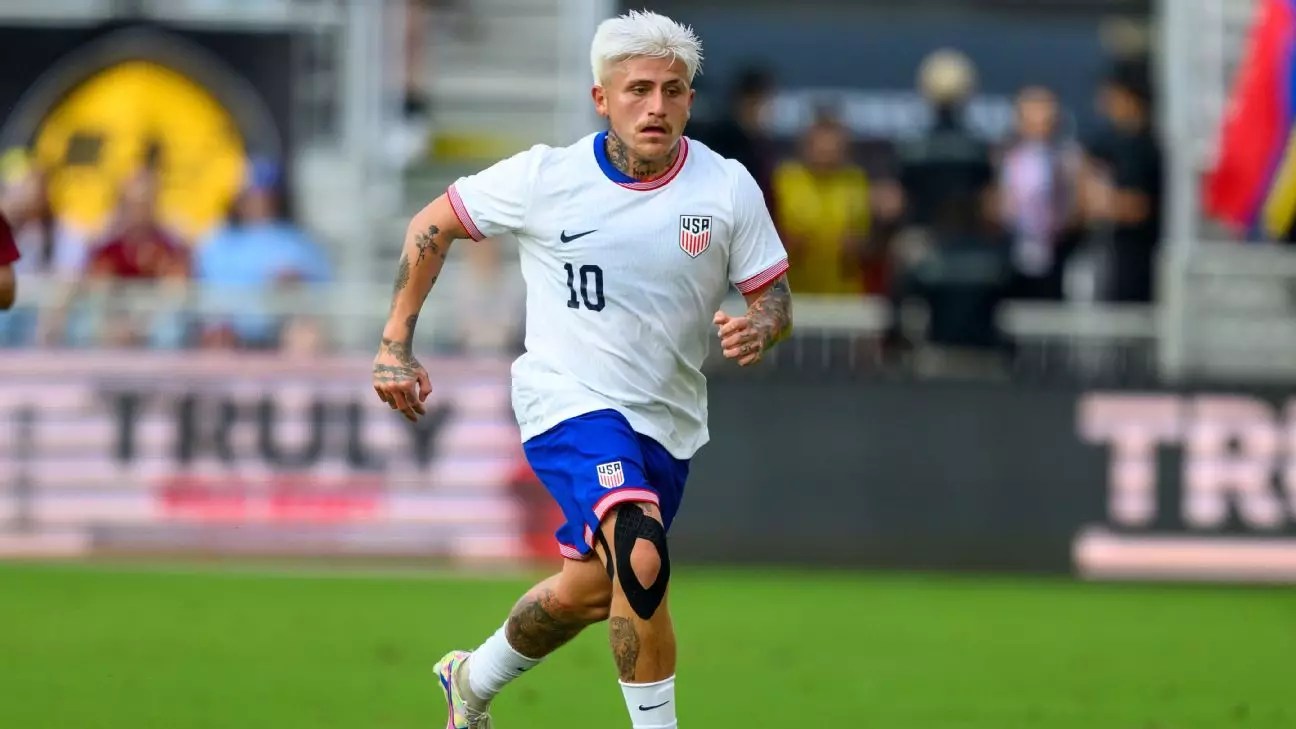Diego Luna, a rising star in American soccer, exemplifies the essence of resilience. At just 21 years old, he has faced challenges that often seem insurmountable for young athletes. His path has not always been smooth, yet his determination and willingness to adapt have propelled him to success on the field. Through an exploration of Luna’s journey, one can appreciate the intricate interplay of personal development, social challenges, and professional ambition that has shaped his career.
Luna’s story begins in the sunny locales of California, where he first cultivated his passion for soccer. While many players are graduated from standard academy systems straight into Major League Soccer, Luna diverged from the traditional route. He found himself at a crossroads, leaving behind the San Jose Earthquakes academy at the tender age of 15 in search of greater opportunities. This move may have seemed reckless to some, but for Luna, it was a calculated risk driven by an intuition that he needed to seek a more conducive environment for his growth. He eventually landed at the Barcelona Residency Academy in Arizona, a pivotal decision that would deeply influence his development both on and off the pitch.
During this transitional period, Luna also had to cope with feelings of homesickness and isolation. Such emotional hurdles are common for young athletes leaving their families behind. However, Luna’s unique childhood experiences—growing up in a soccer-centric family—provided him with an innate understanding of the sport’s demands and the importance of mental resilience.
Luna’s style of play and physicality have often drew comparisons with traditional expectations of American soccer players. While many players conform to a certain athletic build, Luna has challenged these stereotypes. His “different” body type and unorthodox approach to the game have led critics to label him as eccentric. The skepticism only strengthened his resolve. Rather than conform to an expected standard, he honed his unique abilities, proving that creativity and distinctiveness can flourish even in a system inclined towards uniformity.
This notion of individualism extends beyond the soccer field. Throughout his career, Luna has prioritized personal growth, actively exploring roles that enhance his broader skill set. For instance, he took up work as a barista to develop his communication skills, a testament to his awareness of personal shortcomings and his dedication to overcoming them. In addition, he has publicly acknowledged his struggles, opting to engage in therapy as a proactive measure to promote his mental health. These choices illustrate a maturity beyond his years, showcasing the importance of vulnerability in developing not only as an athlete but as a human being.
As Luna transitioned into professional soccer, the pressures intensified. Becoming a father added an extra layer of responsibility to his burgeoning career. The stakes transformed from personal aspirations to familial obligations—playing soccer was no longer just a passion but a vital means of supporting his loved ones. This shift in mentality forced Luna to internalize the relentless demands of professional sports.
On the field, his performances reflected this newfound perspective, culminating in a breakout season with Real Salt Lake where he recorded impressive statistics—eight goals and twelve assists. Acknowledging the demands placed on him, his RSL coach, Pablo Mastroeni, recognized Luna’s potential to be both a prolific scorer and a staunch defender, emphasizing his development on both sides of the ball.
Despite his success, Luna’s journey has not been devoid of setbacks. A notable disappointment occurred last summer when he was omitted from the Olympic team roster. However, his commitment to personal growth played a crucial role in how he navigated this challenge. Instead of succumbing to despair, Luna channeled his emotions into self-improvement, demonstrating that resilience is often cultivated through adversity.
The commitment Luna exhibits to both his craft and his mental well-being distinguishes him from many players in the system. He embodies the philosophy that professional athletes must prioritize mental health as much as physical fitness—a lesson that not only resonates within the soccer community but serves as a critical reminder in modern sports.
Now, as he trains with the U.S. men’s national team in preparation for future international competitions, Luna stands at another crossroads. Armed with the wisdom of experience and a desire to continue evolving, he recognizes that his journey is far from over. With options stemming from his Mexican-American heritage, Luna must navigate the complex dynamics of national identity in soccer, but for the moment, he is focused on his role within the USMNT.
Within this context, Diego Luna’s rise in American soccer signifies not merely the triumphs of a young athlete, but also the importance of self-awareness, perseverance, and adaptability in achieving one’s dreams. As he continues to develop as both a player and a person, Luna exemplifies the transformative power of sport, proving that success is not solely measured by accolades but by the courage to press on in the face of challenges. His journey is not just a testament to his skill; it is a narrative of personal evolution that will inspire many aspiring athletes for years to come.


Leave a Reply